Search Results for: Bees
Skip to resultsCan’t find what you’re looking for? Visit our FAQ page.
1,564 results for: Bees
-
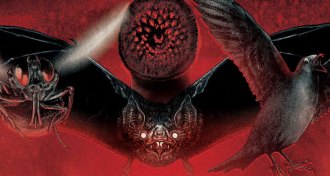 Animals
AnimalsBeing a vampire can be brutal. Here’s how bloodsuckers get by.
Blood-sucking animals have specialized physiology and other tools to live on a diet rich in protein and lacking in some nutrients.
By Susan Milius -
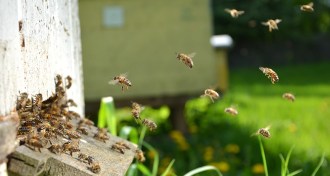 Astronomy
AstronomyWhat do plants and animals do during an eclipse?
A citizen science experiment will gather the biggest dataset to date of animal responses to a total eclipse.
-
 Animals
AnimalsA lot of life on planet Earth is awful and incredible
Acting Editor in Chief Elizabeth Quill discusses how the natural world feeds our sense of wonder.
-
 Anthropology
AnthropologyThe southern drawl gets deconstructed
Analysis of the diversity of vowel sounds found in southern accents could help developers of speech recognition software.
-
 Environment
EnvironmentPeace and quiet is becoming more elusive in U.S. wild areas
Human noise stretches into the wilderness.
-
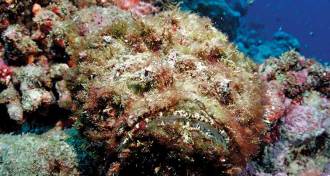 Animals
AnimalsVenomous fish have evolved many ways to inflict pain
Fish venom shows great diversity and is being studied to treat pain, cancer and other diseases.
By Amber Dance -
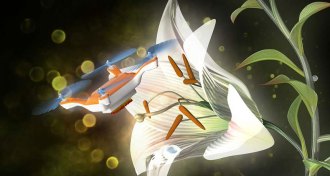 Agriculture
AgricultureFleets of drones could pollinate future crops
Chemist Eijiro Miyako turned a lab failure into a way to rethink artificial pollination.
-
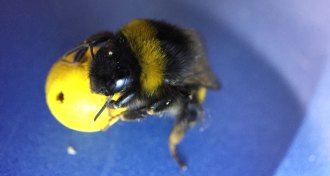 Animals
AnimalsScore! Bumblebees see how to sink ball in goal, then do it better
A first lesson in six-legged soccer tests bumblebees’ ability to learn.
By Susan Milius -
 Ecosystems
EcosystemsIn debate over origin of fairy circles, both sides might be right
Odd bare spots called fairy circles in African grasslands might be caused by both termites and plants.
By Susan Milius -
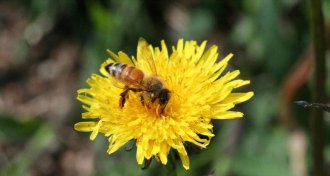 Animals
AnimalsBees take longer to learn floral odors polluted by vehicle fumes
Car and truck exhaust mingling with a floral scent can slow down the important process of honeybees learning the fragrance of a flower.
By Susan Milius -
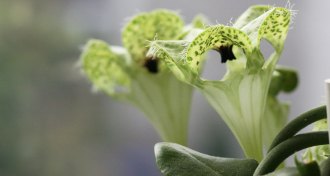 Plants
PlantsFlower lures pollinators with smell of honeybee fear
When it comes to attracting pollinators, one flower species catches more flies with honeybees.
-
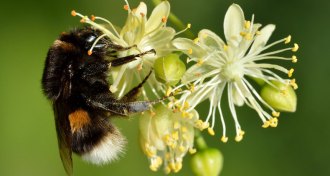 Animals
AnimalsPrimitive signs of emotions spotted in sugar-buzzed bumblebees
When bumblebees eat a sugary snack, they make more optimistic decisions, a new study finds. This could be early evidence for emotion in insects.